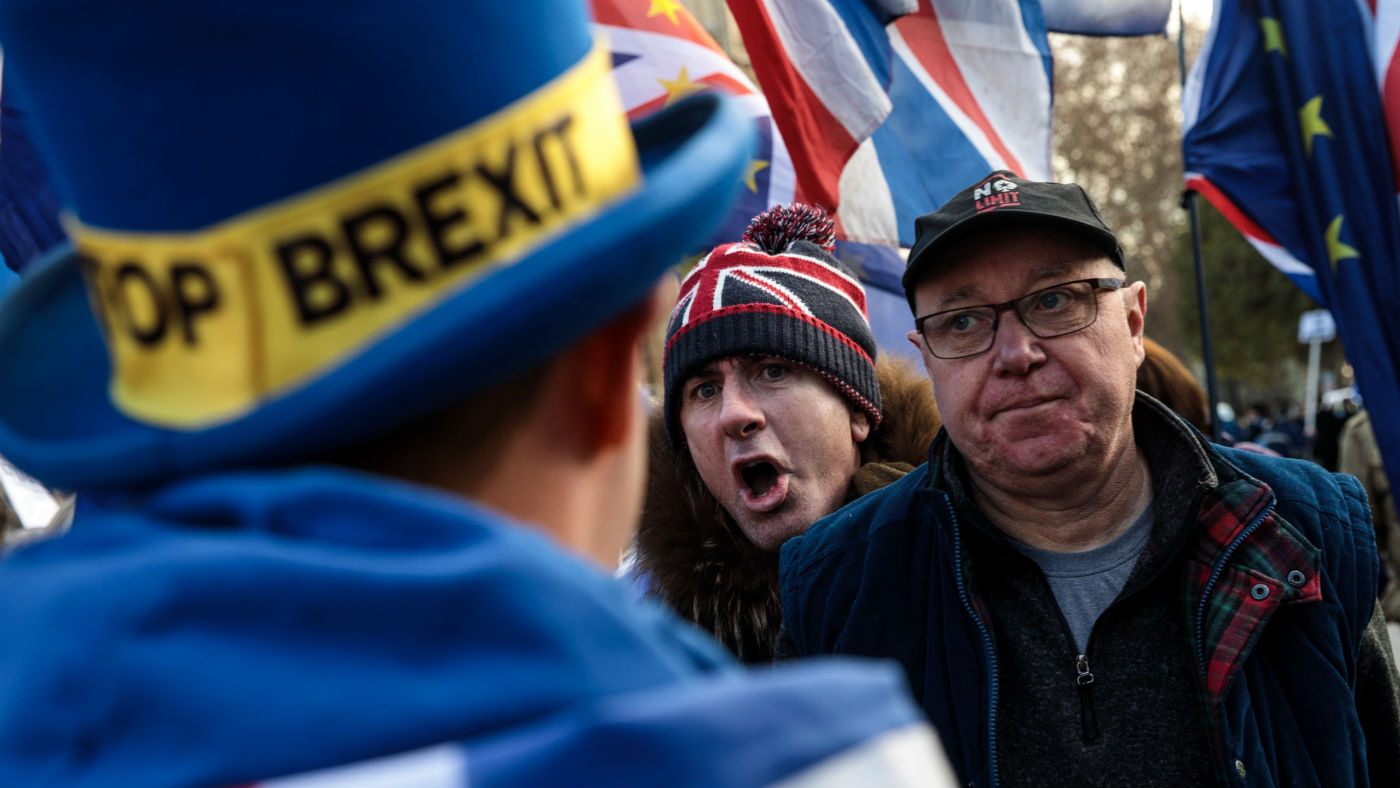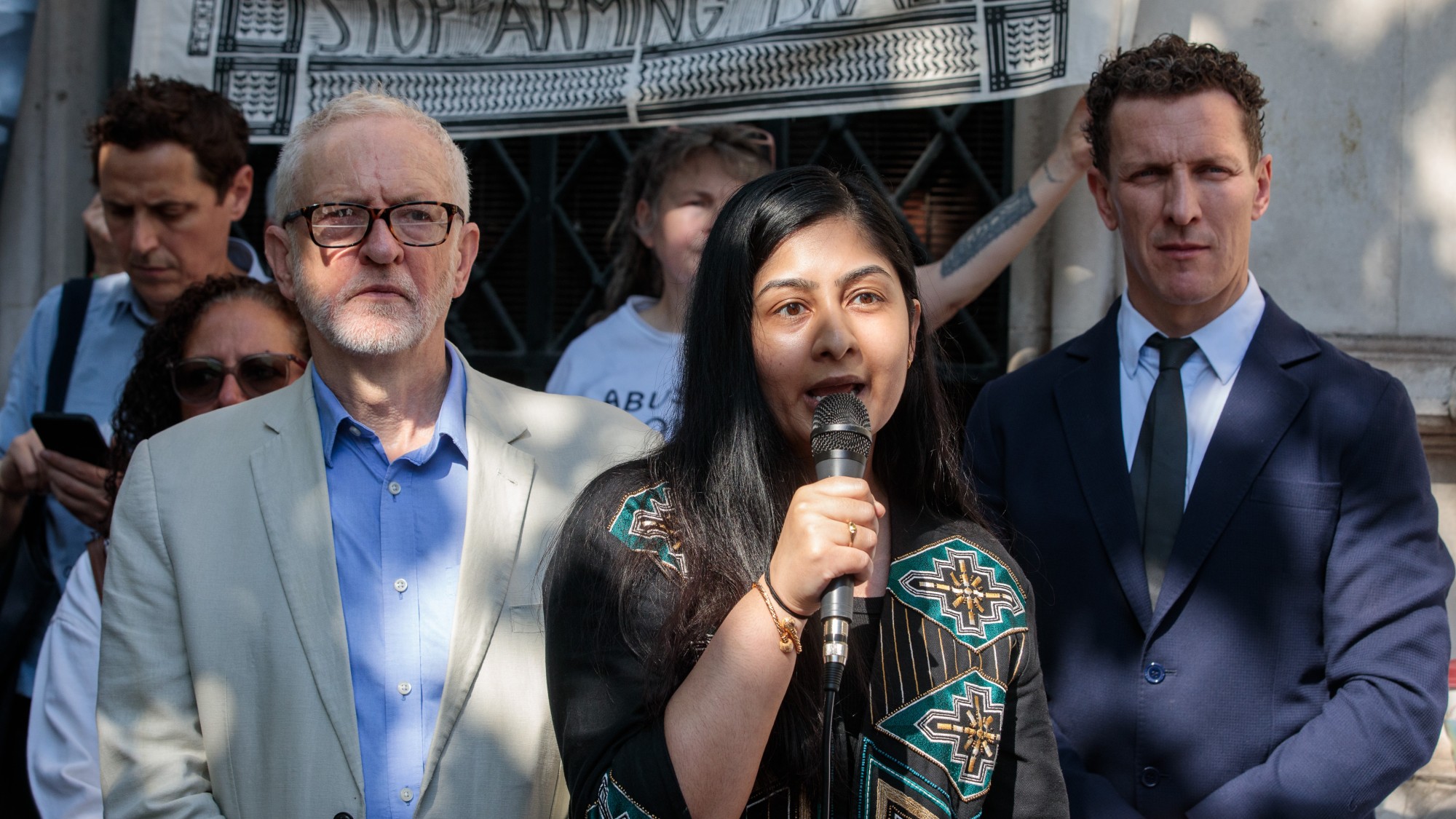Red lines harden over second Brexit referendum
Tories and Labour split over People’s Vote as Theresa May urged to ditch cross-party talks

A free daily email with the biggest news stories of the day – and the best features from TheWeek.com
You are now subscribed
Your newsletter sign-up was successful
Labour and Conservative positions on a possible second EU referendum to break the Brexit impasse appear to be hardening, with MPs on both sides calling on their leaders to break off cross-party talks after more than seven weeks of negotiations.
“Both Labour and government sources have suggested the two sides will need to take stock on the likely progress of the talks this week, and the effectiveness of continuing discussions is likely to be discussed at cabinet on Tuesday morning,” says The Guardian.
The prime minister “is under pressure from cabinet ministers to scrap formal Brexit talks with Labour,” The Times reports, “and launch a final attempt to secure a compromise in parliament” through a series of indicative votes by MPs after the European elections.
The Week
Escape your echo chamber. Get the facts behind the news, plus analysis from multiple perspectives.

Sign up for The Week's Free Newsletters
From our morning news briefing to a weekly Good News Newsletter, get the best of The Week delivered directly to your inbox.
From our morning news briefing to a weekly Good News Newsletter, get the best of The Week delivered directly to your inbox.
May is due to meet the executive of the 1922 Committee of backbench Tory MPs on Thursday, and has been told that she must set a timetable for her departure if she cannot get a Brexit deal passed by parliament.
“The committee is still split, however, on when and if to change the rules to allow another no-confidence vote if May fails to set a firm date” writes Oliver Wright in the Times, adding “some favour an early challenge, before the European elections, in an attempt to show voters that the party is listening to their concerns”.
Following comments by Labour’s shadow Brexit secretary it appears the issue of a second referendum could be the straw that breaks the camel’s back.
In an interview with The Guardian, Sir Keir Starmer said a cross-party deal would be unlikely to pass without a referendum as part of the package, with up to 150 Labour MPs prepared to vote against an agreement without one.
A free daily email with the biggest news stories of the day – and the best features from TheWeek.com
Yet Downing Street responded by saying the prime minister remains opposed to any form of referendum being attached to a Brexit deal.
Yesterday, two cabinet ministers further ramped up pressure on May by making clear their opposition to a fresh poll. Housing Secretary James Brokenshire, said a confirmatory referendum would be “taking us in a different direction”, while Foreign Secretary Jeremy Hunt, said another plebiscite on Brexit would be a “betrayal of what people voted for” in 2016.
The DUP leader, Arlene Foster, whose party is in a confidence-and-supply agreement with the government, said a confirmatory Brexit referendum would place democracy at risk.
While both Jeremy Corbyn and Theresa May remain opposed to a second vote - at least for now - experts at King’s College London have suggested the results at next week’s European elections may provide some useful intelligence about how a second EU referendum would go.
Professor Anand Menon and Dr Alan Wager, who are part of the UK in a Changing Europe project, believe that the turnout figures could reveal how people would vote.
They point out that relative turnout was key in the 2016 referendum, and the levels of enthusiasm in different parts of the country during the European elections might suggest a shift in mood.
Both leaders of Britain’s main parties would like to see the back of Brexit, “but the prime minister doesn't want to put a huge compromise on the table, she doesn't want another referendum. Jeremy Corbyn doesn't want to help out the government unless he can get genuine changes,” says BBC political editor Laura Kuenssberg.
“If neither of them feel they can really budge, well, the talks are not going to be able to succeed, and the government will then have to try to move on to votes in Parliament, the next part of the process,” she writes.
-
 Crisis in Cuba: a ‘golden opportunity’ for Washington?
Crisis in Cuba: a ‘golden opportunity’ for Washington?Talking Point The Trump administration is applying the pressure, and with Latin America swinging to the right, Havana is becoming more ‘politically isolated’
-
 5 thoroughly redacted cartoons about Pam Bondi protecting predators
5 thoroughly redacted cartoons about Pam Bondi protecting predatorsCartoons Artists take on the real victim, types of protection, and more
-
 Palestine Action and the trouble with defining terrorism
Palestine Action and the trouble with defining terrorismIn the Spotlight The issues with proscribing the group ‘became apparent as soon as the police began putting it into practice’
-
 How corrupt is the UK?
How corrupt is the UK?The Explainer Decline in standards ‘risks becoming a defining feature of our political culture’ as Britain falls to lowest ever score on global index
-
 The high street: Britain’s next political battleground?
The high street: Britain’s next political battleground?In the Spotlight Mass closure of shops and influx of organised crime are fuelling voter anger, and offer an opening for Reform UK
-
 Biggest political break-ups and make-ups of 2025
Biggest political break-ups and make-ups of 2025The Explainer From Trump and Musk to the UK and the EU, Christmas wouldn’t be Christmas without a round-up of the year’s relationship drama
-
 ‘The menu’s other highlights smack of the surreal’
‘The menu’s other highlights smack of the surreal’Instant Opinion Opinion, comment and editorials of the day
-
 Is a Reform-Tory pact becoming more likely?
Is a Reform-Tory pact becoming more likely?Today’s Big Question Nigel Farage’s party is ahead in the polls but still falls well short of a Commons majority, while Conservatives are still losing MPs to Reform
-
 The launch of Your Party: how it could work
The launch of Your Party: how it could workThe Explainer Despite landmark decisions made over the party’s makeup at their first conference, core frustrations are ‘likely to only intensify in the near-future’
-
 Taking the low road: why the SNP is still standing strong
Taking the low road: why the SNP is still standing strongTalking Point Party is on track for a fifth consecutive victory in May’s Holyrood election, despite controversies and plummeting support
-
 Your Party: a Pythonesque shambles
Your Party: a Pythonesque shamblesTalking Point Comical disagreements within Jeremy Corbyn and Zarah Sultana's group highlight their precarious position